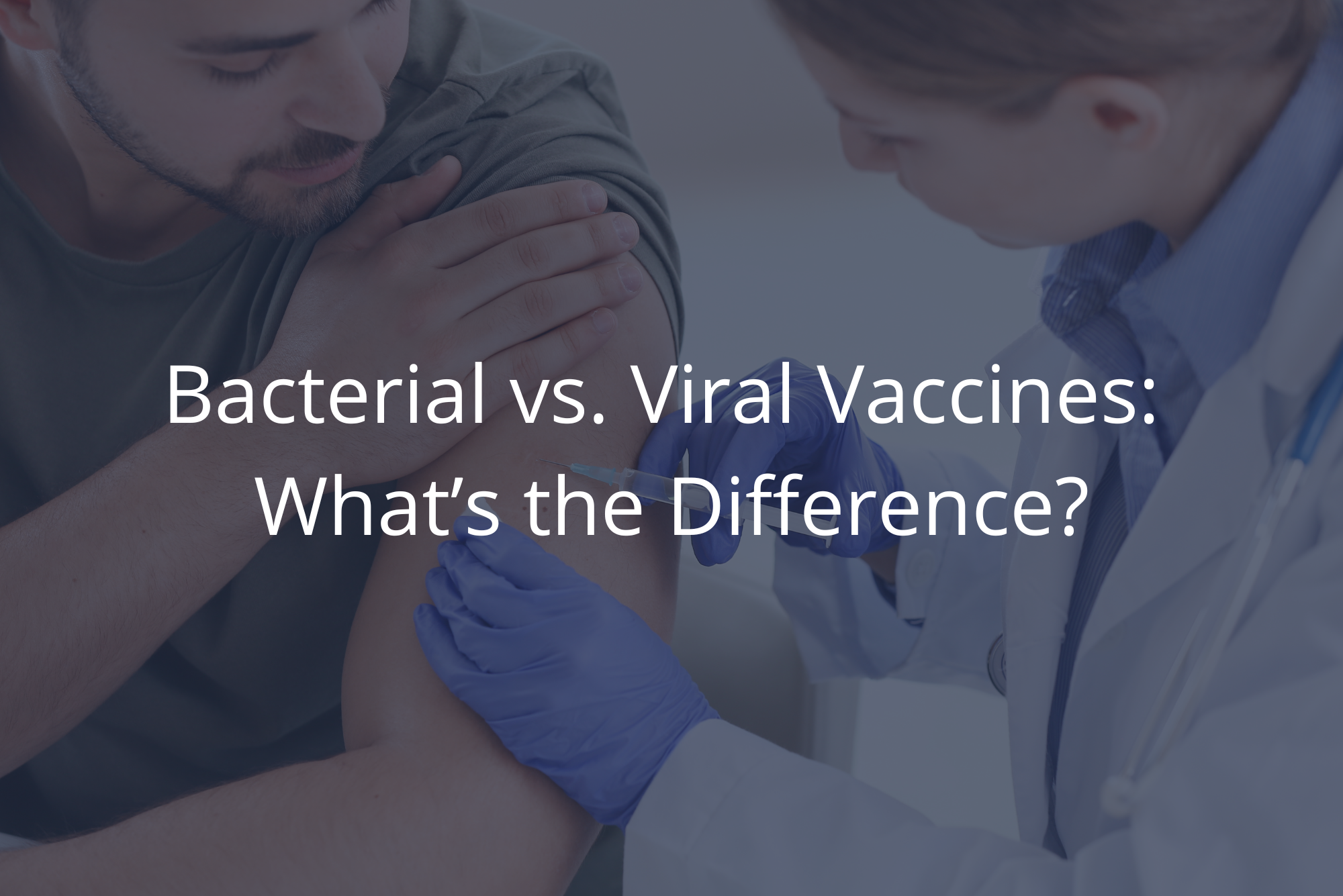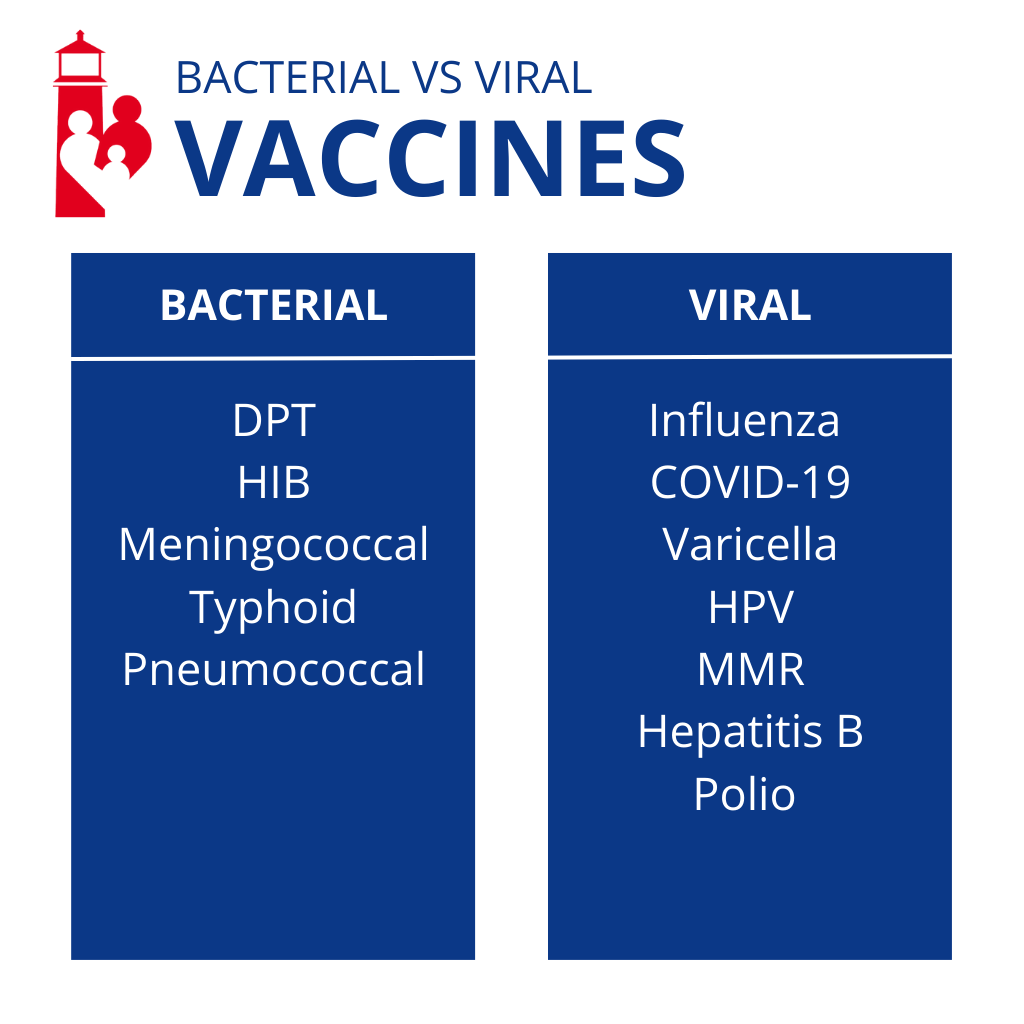
Vaccines have saved countless lives. They’ve come close to ridding the world of some truly terrible illnesses, including smallpox, polio, and tetanus.
There are several vaccines we need every year, while there others we need on occasion — maybe only during childhood, or only once every ten years.
Why is that? Why and how do vaccines differ? They’re all just vaccines, right?
Well, yes and no. What we colloquially lump into the broad category of “vaccines” are actually two types of inoculations: bacterial and viral. Knowing the key difference between bacterial vaccines vs. viral vaccines will help you better understand vaccines, stay healthy, and avoid some miserable illnesses.
Bacterial Vaccines
Let’s take a look at bacterial vaccines first. What are bacterial vaccines and how do they work?
When I say “bacterial vaccines,” I don’t mean to imply that the vaccines are made of bacteria. All modern vaccines are made from proteins. What I mean is that bacterial vaccines are for diseases caused by bacteria.
Bacteria have been around for a long, long time. They can live independently of a host (unlike viruses) and don’t change their genetic structure quickly or easily. As a result, vaccines against bacteria are much more efficient.
Because these bacterial vaccines don’t change, we have a lot more data about them. They’ve been more or less perfected and don’t need to be altered.
Boosters for bacterial vaccines are essentially the same vaccine you got before, boosting your immune system even more efficiently.
Examples of bacterial vaccines include…
- DPT vaccines — diphtheria, pertussis (whooping cough), and tetanus
- HIB vaccines in childhood— epiglottitis, meningitis, and pneumonia
- Meningococcal in infancy and a booster in college — bacterial meningitis
- Typhoid for travelers
- Pneumococcal vaccine — pneumococcal pneumonia
Viral Vaccines
Unlike bacteria, viruses are not considered to be alive in their own right. Viruses require a host. They’re not as hardy as bacteria, but they are constantly — and rapidly — mutating their genetic material in order to survive.
Thus, viral vaccines have to be changed and updated to meet and vanquish mutated viruses. As a result, you have to get vaccinated more frequently, and with updated vaccines. Until COVID, the primary viral vaccine was for influenza. Now, times have changed.
Examples of viral vaccines include…
- Influenza
- COVID-19
- Varicella — chickenpox
- HPV
- MMR — measles, mumps, and rubella
- Hepatitis B
- Polio
Common Vaccine Worries
Nobody loves “getting stuck,” but most common fears about vaccines are unfounded. Adverse reactions to vaccines are few, and vaccines don’t give you the illness they’re preventing.
Your immune system will be activated by a vaccine, which could give you symptoms that make you feel ill. That’s not the same as being infected by the disease you’re being vaccinated for.
For example, when you get a flu shot, you get flu-like symptoms. Maybe you get a little fever; maybe you have some aches. That’s not the flu. That’s your immune system acting on the vaccine.
In modern times, vaccines are made recombinantly through DNA. That means you don’t receive “live vaccines,” which give a low dose of the illness. It’s simply the chemistry of the proteins making you develop an immune reaction to fight off the illness, should you be exposed to it.
Stick to the Needle-Stick Schedule
Most vaccines given infrequently can — and should — be spaced out to minimize side effects. If you’ve stuck to a schedule, this isn’t an issue.
If, however, you’re behind in your vaccines, you can get caught up. Your healthcare provider will prioritize your vaccine schedule, depending upon your age, needs, and risk factors for disease.
If you have any additional questions about bacterial vaccines vs. viral vaccines, consult a trusted physician.

Subscribe to our Newsletter!
Receive latest blog posts, health tips, and exclusive offers from Jupiter Concierge Family Practice straight to your inbox.


